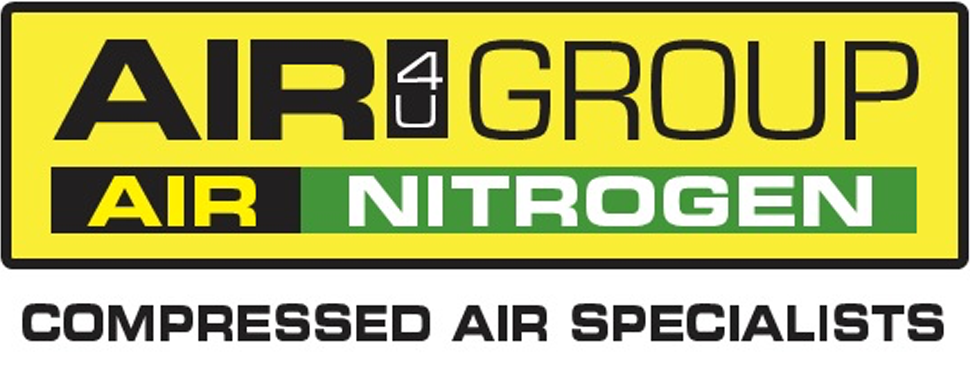What Air Quality Class do you need for your application?
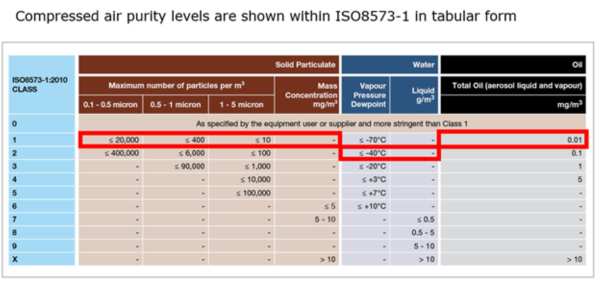
Recently we have been carrying out extensive works to improve the air quality on a customer premises. We thought it might be a good idea to relook at ISO8573-1 air quality and what it means.
Different applications require different compressed air quality levels to deliver optimal safety and efficiency. The International Organization for Standardization (ISO) maintains a set of guidelines called ISO 8573. This defines the classes of compressed air quality based on specific testing criteria.
The ISO standard classifies compressed air quality under ISO 8573 and provides standard criteria for testing air contaminants, including solid particles, oil, and water. While the ISO does not classify gasses and other pollutants like microbiological contaminants and volatile organic compounds, it does include methods for measuring such pollutants. The ISO standards are periodically updated to keep up with fast-changing industries. The most recent update was ISO 8573:1:2010.
SO8573-1 is the primary document used from the ISO8573 series as it is this document which specifies the amount of contamination allowed in each cubic metre of compressed air. ISO8573-1 lists the main contaminants as Solid Particulate, Water and Oil by three-digits, such as 1.1.1, 1.2.1, or -.8.-. The digits are read from left to right, with the first digit representing solids particles, the second water, and the third oil. A low number means air with fewer contaminants, while a high number means highly-polluted air.
Please see the picture which is Compressed Air Purity Levels shown within ISO8573-1 in tabular form.
What ISO8573 does not do, is define air quality levels per type of application. Air4u Group have solutions that can help you meet the right class for your application. Our team of air understands that every application requires a unique air system solution to provide the ideal class of air.
Air4u Group provides a complete solution, whether you are purchasing a new air system for installation or have an old air system that requires updating or professional diagnosis and repair.
We deliver air systems for a variety of commercial and industrial applications. Give us a call to determine the ideal filtration and dryer package for your industry or application.
Please contact us on 01903 257213 for more information or please follow the link to send us an email at : sales@air4ultd.co.uk
Air4u Group can arrange testing to ISO8573-1 and also Breathing Air Testing.
Did you know Air4u can carry out a Breathing Air Quality Test?
Air Compressor Pipework Installation
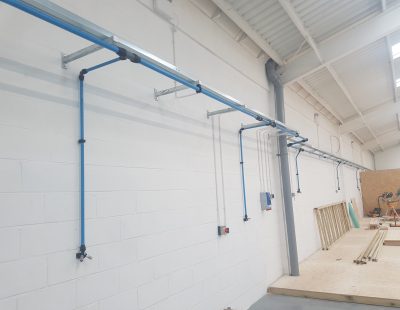
Looking to modify an existing installation or looking for a new Air Compressor Pipework Installation?
Air4u Group can provide a free consultation on Compressed Air Systems and will help you to design a Pipework System to suit your needs.
Running new pipework for air compressors is an effective and efficient way to reduce the risk of equipment downtime, while also improving the quality of the compressed air supply. The installation of new pipework eliminates any possibility that existing components are corroded or leaking, and reduces energy losses due to friction in connecting joints. This improved efficiency can help lower operating costs and increase system reliability. Additionally, it reduces stress on other components, such as pumps and filters, by providing a more consistent flow rate.
New pipework enables better control over pressures and temperatures when supplying compressed air from one source to several machines. This is necessary to ensure that the highest quality products are produced with minimal impact on product yield and overall efficiency.
Installation of new pipework requires specialist knowledge and expertise to ensure that the job is completed according to industry standards. Air4u Group's qualified technicians should be consulted prior to any installation projects, as this will help prevent potential problems like air quality issues or pipe failure in the future.
Running new pipework can also enable additional features, such as filtration systems, which optimise performance further. This ensures that compressed air meets current safety regulations and reduces noise levels for a more comfortable working environment.
Air4u Group can supply and install a variety of Compressed Air Pipework types.
We offer many types of pipework from modern aluminium to traditional galvanised, stainless steel and plastic. All our pipes are compliant with the latest health and safety pressure regulations.
Our sizes of Galvanised nominal bore tubing ranges up to 6" BSP and 25 bar working pressure.
Aluminium has become the industry standard for complete compressed air piping systems because it is both anti-corrosive and lightweight, and easy to handle. We recommend AIRnet optimized piping solutions available in aluminium sizes ranging from 20mm-158mm and up to 16 bar working pressure. AIRnet press-fit stainless steel is up to 100mm. AIRnet is fast and easy to install and flexible for easy modifications to your system in the future, should you require it. AIRnet is reliable, safe and maintenance free!
Air4u Group's Engineers are fully trained and have many years experience in Pipework Installations. Whatever system is best for you, Air4u Groups Engineers can complete the installation, no matter how big or small.
Once completed, we can also assist with a Written Scheme of Examination in accordance with Pressure System Regulations. For more information on this, please see our previous blog on our website https://www.air4ultd.co.uk/what-is-a-written-scheme-of-examination/
You can also visit the Health and Safety Executive website at https://www.hse.gov.uk/pubns/indg178.htm which has a free download available.
Please contact us on 01903 257213 for more information or please follow the link to send us an email at : sales@air4ultd.co.uk
The two main types of Rotary Screw Compressors
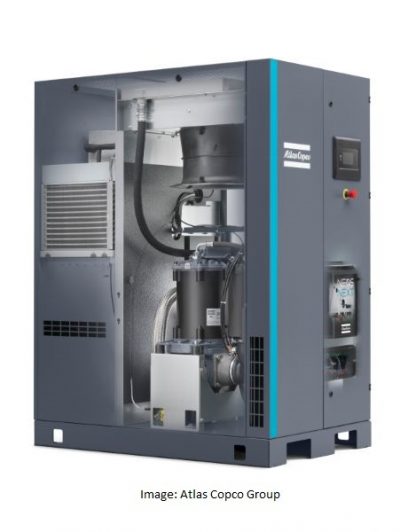
The two main types of rotary screw compressors are: VSD Compressor and Fixed Speed Compressor.
VSD stands for variable speed drive. Hidden behind these letters is inverter technology that automatically adjusts the compressor’s motor speed to the compressed air demand in real time. This often saves a lot of energy and money.
Variable speed compressor energy savings.
The key benefit of using a variable speed compressor is their ability to effectively meet fluctuating air demands by controlling speed. Because a variable-speed compressor runs only at the required speed, this can present businesses with substantial energy saving costs.
Using a VSD compressor makes sense when:
- Demand for compressed air fluctuates significantly between jobs.
- Demand varies by shift, on weekends or seasonally
- Manufacturing processes require tight tolerances for operating pressure.
By rotating slowly, variable speed compressors produce less and, as a result, absorb less energy. They can automatically slow down their rotation speed until the unit produces the precise amount of compressed air for the downstream equipment. As a result, variable speed compressors can save around 30% on average when compared to the energy costs of fixed-speed compressors.
How do VSD energy savings compare to fixed speed compressors?
Unless your application has either full load or no-load requirements, the ability to save considerable energy costs should not be ignored. As most applications tend to have a fluctuating air demand, this is one area where VSDs have the edge over fixed-speed compressors.
Additionally, if your business qualifies for energy-saving programmes then there might be an added incentive for using a variable-speed compressor because it can help towards this.
Variable speed compressor advantages.
Aside from saving money on energy costs, variable speed compressors can also stop and start under full system pressure. Because there is no need to unload, this can contribute towards increasing productivity. Additional benefits of using variable speed compressors include:
- A VSD compressor can operate within a much tighter pressure band than a fixed speed compressor can attain.
- A VSD compressor can operate at lower delivery pressures and still maintain the air system’s required minimum working pressure.
- A VSD compressor’s net pressure can be set lower than the unloaded pressure on fixed speed compressor, and each 1 bar reduction results in 7 percent savings in energy.
- Quieter operation under lower RPM (Revs per minute).
- The ability to run on 100% airflow.
- Minimised system leakage due to lower pressure.
- Avoiding peak currents at Compressor start-ups.
- Soft motor starts.
- Removing blow-off losses during operation.
- Increased component lifetime.
How do VSD benefits compare to fixed speed compressors?
A fixed speed compressor can provide a constant supply of compressed air 24/7, albeit one that is limited to a fixed RPM unless turned off manually. They are most efficient in applications with consistent compressed air demands, not ones that might have peaks and troughs. Generally, they have a lower capital cost, lower maintenance and repair fees, and increased availability of spare parts.
It is important to note that despite their energy-saving potential, variable speed compressors are much more of an investment compared to fixed speed compressors, which are cheaper to purchase and cost less to maintain.
Variable speed compressor reliability.
Variable speed compressors are very reliable when it comes to addressing fluctuating air demand. Using variable speed drive technology, they can change the frequency that they supply to their motors, meaning they can adjust the spin speed of their rotary screws.
Depending on the air pressure requirements at any one time, they can speed up and slow down to address specific requirements without over-consumption.
How reliable are VSD compressors compared to fixed speed compressors?
If your business operates 24/7 without any notable disruptions to production cycles or has a consistent rate of energy consumption, fixed speed compressors can be just as reliable as their VSD counterparts. However, if your business has frequent changes in production outputs – be they daily, weekly or even seasonal – a fixed speed compressor will ultimately use more energy than variable speed compressors.
That said, because variable speed compressors can change operational speeds, they are more prone to inconsistencies coming from their power source and are particularly sensitive to heat and moisture exposure.
Variable speed vs fixed speed: which is better?
VSD compressors do have many advantages that can benefit most industrial users, but they are not always the right choice. If your demand variations are minimal, a properly sized fixed speed compressor may be more efficient. The key differences between variable speed and fixed speed compressors are the way the motor is controlled, how much energy they can save, and how much they cost to maintain. While variable speed technology is more superior for adapting to changing air demand and therefore saving considerable energy costs, they might not be worth the investment if they don’t match your site requirements.
For example, if your business is prone to peaks in production cycles or fluctuations daily, then a VSD compressor will be better, providing it won’t take too long to reap the energy-saving benefits. Alternatively, if your business experiences drop-offs or surges that can’t be controlled, a VSD compressor might not be worth both the initial or the long-term cost.
If you are unsure about whether your business requires a variable speed compressor or not, Air4u Group can offer a site audit to identify your current energy use and to assess your compressed air needs... For more information, please see the previous blog on our website https://www.air4ultd.co.uk/why-have-compressor-data-logging/
If you would more information or advice, please do not hesitate to follow the link to send us an email at sales@air4ultd.co.uk
24-Hour Emergency Service for Your Air Compressor Needs
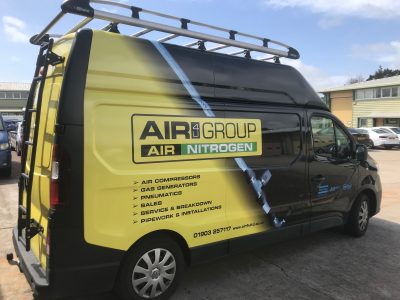
The Air4u Limited service team are dedicated to going the extra mile to meet the needs of our customers in an Air Compressor emergency. No matter the issue, we will resolve it, or find someone who can help you with your issue. 24/7 phone support, as well as on-site support, gives you the assurance and expertise that you need to stay running.
We can address a wide range of emergency and standard air compressor needs, including:
- Air compressor failure.
- Air compressor/Air dryer will not start.
- Air compressor is overheating.
- Air compressor motor overload.
- Compressor blows fuses/breakers.
- Compressed air system is making abnormal sounds.
- Air compressor is leaking oil.
- Air compressor will not maintain pressure.
- Pressure drops in the compressed air system.
- High oil carry over in the compressed air.
- Water in the compressed air lines.
- Air leaks in the compressed air system.
- Broken compressor fan.
- Broken intake filter.
- Compressor on/off switch not working.
How we work
Our team is on call 24/7 - 365 days for emergency compressor repairs. For assistance just ring 01903 257212.
Our engineers will try and help you over the phone or will arrange to send an engineer to site if required. Before the engineers visits your site, they will get a detailed description of the issue. Once on site, they will perform a thorough visual inspection, and (if needed) run diagnostic tests.
Whenever possible, we make the repair immediately. Our vans carry a range of commonly needed parts and supplies, so we can fix many emergency repair issues on the spot.
When the repair is complete, we make sure that everything is running as expected and let you know how to prevent similar problems in the future.
Our team of Engineers are experienced in maintaining and repairing most types and brands of compresssors.
In the unlikely event we are unable to repair your compressor, in a short space of time, we may be able to offer (subject to availability) a loan/hire machine.
Charges:
An engineer is permanently on call for emergencies, should you need one. We simply charge travel time + time on site + materials used for call outs.
Normal Working Hours
Monday through Friday, 8AM to 4PM. Any request for immediate service is considered an emergency and the first available engineer is sent. We charge our regular rate (travel time + time on site) and the cost of any materials used for call outs during normal working hours.
After Hours
Considered anytime on Monday through Friday, 4PM to 8AM. Any request for an engineer to be on-site during these hours is billed at time and a half of our regular rate and the cost of any materials used.
Saturdays
Any request for an engineer to be on-site during these hours is billed at time and a half of our regular rate and the cost of any materials used.
Sundays and Bank Holidays
Any request for an engineer to be on-site during these hours is billed at two times our regular rate and the cost of any materials used.
No matter what brand of compressor you have, Air4U Group can help get your compressed air equipment back up and running, just call our team of engineers on 01903 257212 or please follow the link to send us an email at service@air4ultd.co.uk
Why should I service my Air Compressor?
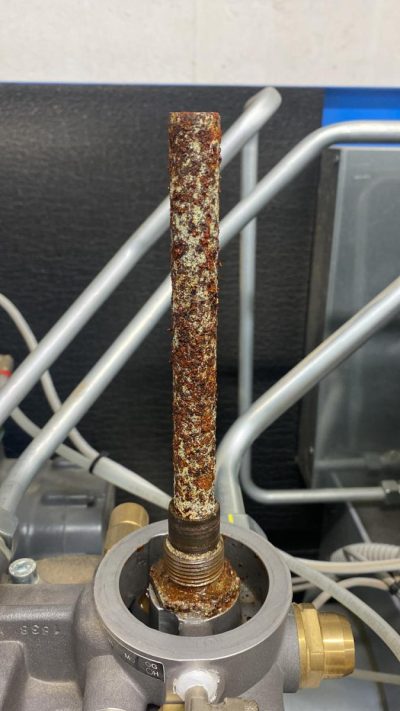
The common example that most people can relate this to, is maintaining your car.
Preventative maintenance looks like changing your oil and filters regularly, checking brakes and tyres and replacing aging parts after a certain number of miles. If you stay on top of these needs, you are more likely to enjoy a well-functioning car, that lasts a long time.
Like any mechanical equipment you may have, your Air Compressor needs to be serviced regularly to maintain its performance, reliability and longevity. Most manufacturers recommend servicing an Air Compressor every year or every 2000 hours. 2000 hours is effectively 40 hours per week a year.
Air Compressors work quite hard for long periods of time. They absorb a huge amount of power and give off a large amount of heat.
An Air Compressor has several parts that must be maintained to ensure they work properly and efficiently. A Compressor needs to have its oil changed, its filters changed and its after cooler inspected.
The benefits of maintaining your Air Compressor.
Air Compressor maintenance has many benefits. Here are 5 important reasons why you should proactively maintain your Air Compressor:
Have more control over your Maintenance Schedule.
One major benefit of Preventative Maintenance is that it gives you more control over your Air Compressors's maintenance schedule. You determine the best time to have your Compressor serviced, so there is minimal disruption and downtime.
Greater control over your maintenance schedule also means a more predictable plan and budget. Essentially, you treat maintenance as a part of your plan, rather than when it disrupts it. That does not mean you will never run into an unexpected repair or replacement, but hopefully these will be reduced.
Increase the Life Expectancy of your Compressed Air Equipment.
A big advantage of Preventative Maintenance is that it can help you extend the life of your equipment. When it comes to maintenance, equipment replacement can provoke potential disruptions to your operations and finances. Replacing your Air Compressor is sometimes an inevitable reality. All of them will age and eventually need replacing.
Preventative Maintenance is one of the very best ways to increase your equipment's life expentancy. Keeping your Air Compressor well-lubricated, changing their filters and fixing small issues as needed, can help your systems run smoothly for a long time.
Increase efficiency of your Air Compressor.
Air Compressor Maintenance will help to ensure productivity continues, which is crucial for any business that manufactures products according to a strict timetable. When the Air Compressors work at full capacity without fail, all the tools along the assembly line can perform at maximum speed and keep productivity flowing day in, day out.
Reduct equipment downtime.
Another major advantage of Air Compressor Maintenance is that you can avoid long periods of downtime.Planned maintenance measures tend to take less time than a major repair or complete equipment replacement. You can also plan these maintenance tasks to take place at a convenient time, to avoid any interferance in your production schedule
The actual financial cost of unexpected downtime will vary for every business. However, even an hour of it can cost you money. Avoid this costly problem by planning preventative maintenance.
Improve workplace safety.
Carrying out regular maintenance of all your equipment, including your Air Compressors, can reduce health and safety incidents. Any unexpected equipment failure can pose a safety hazard. It may lead to machinery malfunctioning or stopping suddenly. Maintenance routines can avoid problems with your equipment that can put your employees health and safety at risk. Following manufacturers recommended servicing schedules is critically important to keeping your Air Compressor in tip top condition and working efficiently.
All Compressors need to be regularly serviced by a competant person, using quality parts and lubricants, to ensure they remain reliable and have a long operating life.
The details of exactly what is included in the service of a Compressed Air System will vary according to the type of Air Compressor, its make and model, which type of service is being carried out (Major or Minor Service) and the current hours run of the Compressor. However, regardless of the type of service, the same things are checked or serviced and possibly replaced.
To give you an idea of what is carried out on a service:
Minor/Interim (or 2000 hour) Service on a rotary-screw compressor comprises of changing the air filter, oil filter, cabinet filter mat (where fitted) and oil.
Major (or 4000 hour) Service comprises all of the above plus changing the air/oil separator element.
Filters and oil water separators will also be changed annually. Some models also have additional services carried out at higher hour intervals.
If you wish to find out any further information or would like to book a service, please follow the link to send us an email at sales@air4ultd.co.uk
Preventative Maintenance Plan
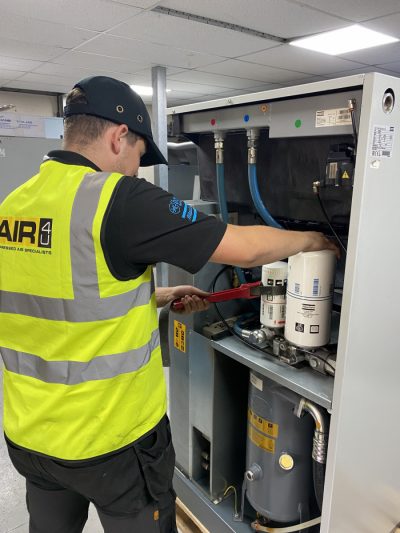
Have you ever considered a Preventative Maintenance Plan, also known as an Annual Service Contract?
What is a Preventative Maintenance Plan / Annual Service Contact?
A Preventive Maintenance Plan / Annual Service Contract (ASC) offers on-time servicing by trained engineers, tailored to your business and site circumstances. The maintenance plan is designed to meet your needs and increased reliability for a fixed fee.
What can Air4u Limited offer?
With many years of experience in a wide range of makes and models of air compressors, Air4U engineers are also able to offer advice on all components of your compressed air system controllers, filtration, condensate management systems, breathing air systems and air dryers (both desiccant and refrigerant).
Air4U offers a proactive approach to ensure your system is the right set-up for your current and future needs and contact you to ensure servicing is done when agreed/needed, which is one less thing for you to worry about! Whether you need an individual compressor servicing or multiple machines across multiple sites, you can be certain to have complete peace of mind with a tailored maintenance/annual service package.
What are the types of Preventative Maintenance Plans / Annual Service Contract?
We offer a variety of Annual Service Contracts. You may decide on a 1 year or 3-year contract. To help with your finances, we can offer a monthly payment plan, or you can just pay it yearly.
Some machines come with an extended warranty, and we can offer a fixed price contract for the length of the warranty period. Again, this can be paid on a monthly payment plan or yearly.
What does the Annual Price include?
The Annual Price includes: - All costs of nominated consumable spares and lubricating oil necessary to affect all pre-planned maintenance visits.
- All consumable parts are covered by a parts and labour guarantee.
- Call out system operating 24 hours per day 365 days per year (call outs will be charged at an additional amount to be charged on a time and materials basis in accordance Air4U’s standard tariff).
Preventative Maintenance Plans / Annual Service Contracts are an effective solution for resolving:
- Lost production
- Random breakdowns
- High maintenance costs
What are the benefits?
- A service as per the manufacturers schedule or yearly.
- Increased production time.
- Improved quality.
- Reduced service costs.
- Priority call-out.
- Out of hours support.
- Designed to meet your specific requirements.
- The ASC is intended to be an integral part of a preventative maintenance programme, designed to keep your compressed air equipment running efficiently throughout the year. The contract provides for planned interventions by experienced, professional engineers to suit specific requirements.
Rental Compressors
We also have a stock of rental air compressors. If any maintenance will require an unacceptable length of downtime, we can offer these to ensure a continuous supply of compressed air.
Discover how we can help!
- We service all well-known makes and models of compressors.
- We aim to offer you a local service with an engineer based in your area.
- Your details are logged on to our personally designed system, which automatically flags-up when your next service is due. You don’t need to worry about remembering to get the work done: our Service Department will call you in plenty of time to book our engineer’s visit for a convenient time.
- When carrying out scheduled maintenance visits unlike others, we do not charge extra for mileage, cleaning materials or “sundries”. These are already included in our prices and there are “NO HIDDEN CHARGES”
- As well as a fixed price rate, our contract service customers benefit from 24-hour breakdown cover. An engineer is permanently on call for out-of-hours emergencies, should you need one. We simply charge our agreed rate (travel time + time on site) for call outs
- We are registered to dispose of your waste oil according to the current legal requirements.
If you wish to find out any further information or would like to book a service, please follow the link to send us an email at sales@air4ultd.co.uk or call us on 01903 257117
Merry Christmas and a Happy New Year

Everyone at Air4u Limited would like to wish all our Customers and Suppliers a Merry Christmas and a Happy and Prosperous New Year!
Also, we would like to thank everyone for their continued support this year and we look forward to working with you all in 2023!
Christmas and New Year Opening Times

Christmas & New Year Opening Times
Friday 23rd December 8:00am – 12:00pm
Christmas Eve CLOSED
Christmas Day CLOSED
Boxing Day CLOSED
Tuesday 27th December CLOSED
Wednesday 28th December CLOSED
Thursday 29th December CLOSED
Friday 30th December CLOSED
Saturday 31st December CLOSED
New Years Day CLOSED
Monday 2nd January CLOSED
Tuesday 3rd January NORMAL HOURS
During the shutdown period we will have engineers on call
TEL: 01903 257117 option 2
Compressed Air Safety - Employer and Employee Responsibilities

Compressed air is a safe, reliable form of power.
It is flexible, odourless and non-toxic, but it can be dangerous if not used responsibly. Under the Health and Safety at Work Act 1974, the employer has a responsibility to provide a safe working environment and the employee, in the case of compressed air, has a responsibility to use air operated tools and equipment in a safe manner to protect his/her own safety as well as that of work colleagues.
Key hazards within a compressed air system:
- The accidental release of high-pressure air, resulting from equipment failure, or the use of air supply equipment in the wrong, untrained or unaware hands, can have potentially fatal consequences.
- Noise from compressed air leaks and pneumatic machinery.
- Hand arm vibration from pneumatic tools (this is also a hazard with electric tools).
- Hot discharge pipes.
- Moving parts of compressor.
- Exposed drive shafts and belts.
- Trip hazards from trailing hoses.
- There are several types of health problems which can be caused by working in compressed air.
Do...
- Take care, compressed air injected into the skin at any pressure can kill.
- Wear personal protective equipment where required, e.g., one or more of: safety goggles, ear defenders, face mask, gloves.
- Select low vibration tools from reputable suppliers.
- Check hoses on air tools for cracks or loose connections.
- Make sure you have proper training on all pneumatic equipment you use.
- Report any hazards or unsafe practices.
- Remember that everyone, including you, has a responsibility for safety.
- Remember blowguns should only be used for cleaning purposes where the use of vacuum is not possible or appropriate. Very serious injuries, sometimes fatal, have occurred when the nozzle of the gun has been pointed towards the body, even at some distance from it. Many of the injuries occur when clothing is dusted down and because of this compressed air should never be used for cleaning clothing. Others are the result of horseplay.
- Maintain your system as required by the Pressure Systems Safety Regulations 2000 (PSSR).
- Consider the replacement of quick release couplings with a 2-stage safety coupling.
Don’t...
- Point a compressed air jet at any part of anyone’s body.
- Block the end of a blow gun even if it has a cut-out safety mechanism.
- Use compressed air for general cleaning purposes such as work benches or clothes.
- Interfere or tamper with any safety devices fitted to equipment.
- Use pneumatic equipment unless you have been trained.
- Use blow guns without personal protective equipment even at 2 bar damage can still occur.
More information regarding the Health and Safety at Work Act 1974 can be found on https://www.hse.gov.uk/legislation/hswa.htm
If you would more information or advice, please do not hesitate to follow the link to send us an email at sales@air4ultd.co.uk
Energy savings with Heat Recovery
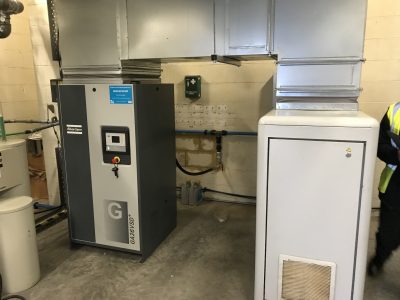
Heat Recovery helps to reduce energy consumption, eliminate emissions and can save money
Compressed air is one of the most important utilities for the industry. It is also one of the largest consumers of energy. Therefore, compressor energy savings have a significant impact on costs and on the environment.
Most responsible Compressor manufacturers provide various solutions in this regard, such as Heat Recovery with Rotary Screw Compressor Systems for example.
Compressors primarily generate heat. Unbelievable as it may seem, up to 94% of the electrical energy input to a compressor is turned into heat. The action of compression charges the air in the compressor with potential energy. This energy is given up at the point of use by the compressed air expanding and drawing heat from the surroundings. Statistics show that compressed air typically accounts for about 12% of the total energy costs for industrial manufacturers.
Without energy recovery, this heat is lost into the atmosphere via the cooling system and radiation. However, the good news is that between approximately 70% of energy is recoverable from oil-injected screw compressors, and up to 94% from oil-free water-cooled screw compressors.
Heat recovery methods.
Compressor users wanting to improve the efficiency of their compressed air system can choose from a number of heat recovery methods:
Air Heating.
The simplest and most direct method of recovering the heat generated in a fluid-/oil-cooled rotary screw compressor is by using the heat from the compressor system's warmed cooling air. This heated air is ducted away to be used for space heating of warehouses and workshops. The hot air can also be used for other applications such as drying, heat curtains and pre-heating combustion air. When the hot air is not needed, a manual or automatic flap, or louvre discharges it outside into the open. The flap can even be thermostatically regulated to maintain a constant, set temperature. The space heating method allows 94 % of the electrical energy consumption of a screw compressor to be recovered and it is well worth it.
Hot water.
Hot water for various purposes can be recovered from either an air-cooled or water-cooled compressor package by means of a heat exchanger installed in the air end cooling oil circuit. Plate or fail-safe heat exchangers are used, depending on whether the water is used for heating, laundry or even showering, production or commercial cleaning purposes. Water temperatures of up to a maximum of 70 °C can be achieved with these heat exchangers. Experience shows that for compressor packages upward of 18.5 kW capacity the additional costs for these heat recovery systems can in some cases be paid back within two years.
Normally, we recommend the compressor's primary cooling system should never be used both for cooling and as a heat recovery system. The reason being should the heat recovery system fail then compressor cooling and therefore the production of compressed air would be endangered. The safest method is to fit an additional heat exchanger in the compressor purely for heat recovery. Then, in the event of a failure, the compressor can revert to its primary air- or water-cooling system and so continue operation. The supply of compressed air is ensured.
Recovering the heat of compression for a useful purpose is an intelligent way of improving the economics of compressed air production and benefitting the environment at the same time. The effort involved can be comparatively small. The investment is quickly recovered depending on local circumstances, how you use the heat generated and the method of recovery chosen.
If you would more information or advice, please do not hesitate to follow the link to send us an email at sales@air4ultd.co.uk
